Magnesium citrate is a supplement form of magnesium that’s often recommended for children experiencing constipation. This compound is a combination of magnesium and citric acid, which together have a mild laxative effect. When administered, it draws water into the intestines, which softens stool and promotes bowel movements. It is important to consult a healthcare provider before giving magnesium citrate to children to ensure safety and proper dosing.
For kids, maintaining adequate magnesium levels is crucial as this mineral supports numerous bodily functions. It plays a role in muscle and nerve function, blood sugar control, and bone health. Magnesium citrate is one of the many forms of magnesium supplements available and is known for its higher bioavailability, which means the body may absorb it more easily than other forms.
However, the use of magnesium citrate for purposes other than treating constipation should be approached with caution in children. Long-term use can lead to an imbalance of minerals in the body and potentially cause adverse effects. Appropriate dosing is dependent on the age and needs of the child, with specific dosages recommended for different age groups to avoid potential side effects such as gastrointestinal discomfort or imbalances in other electrolytes.
Reader's Roadmap
Understanding Magnesium Citrate
Magnesium citrate is a supplement often recommended for children to support their dietary needs and promote various aspects of health.
What Is Magnesium Citrate?
Magnesium is a crucial mineral for the human body, involved in over 300 enzymatic reactions. Magnesium citrate is a salt formed by combining magnesium with citric acid. This compound is more easily absorbed by the body than other forms of magnesium, making it an effective supplement. It’s typically used to help manage constipation and improve bowel regularity in children, but its benefits extend beyond supporting gastrointestinal health.
The Role of Citrate
Citrate, the other component of magnesium citrate, plays an essential role in the body’s metabolic processes. In supplement form, citrate can enhance the absorption of magnesium, making it more bioavailable. The dietary intake of citrate along with magnesium may also have a mild laxative effect, which helps in creating a balance within the digestive system. Magnesium citrate supplements serve to complement a child’s diet, especially when dietary intake may not meet the recommended levels of magnesium.
Benefits for Kids
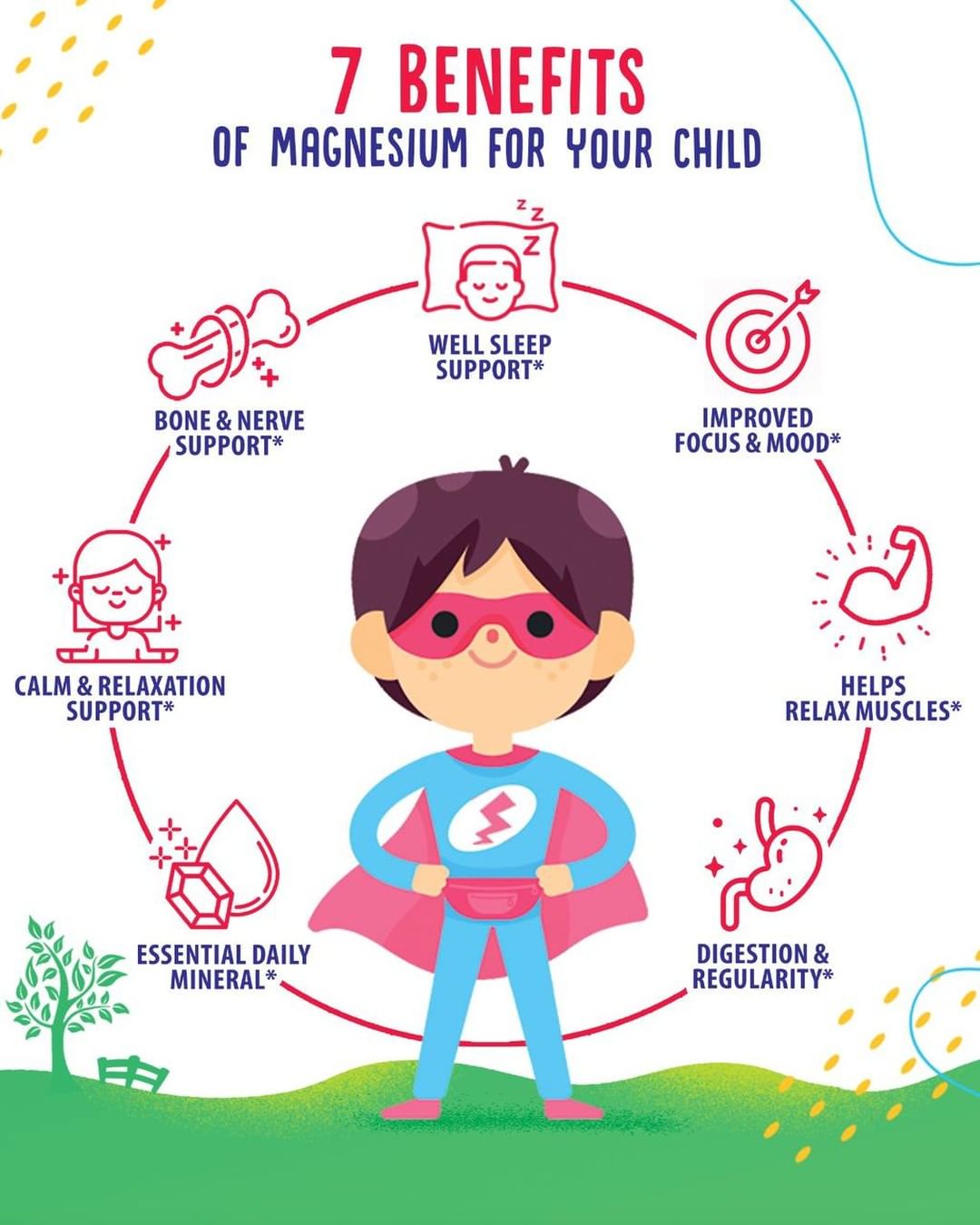
Magnesium citrate offers several specific benefits for children, including support for their growth and development, improvements in digestive health, and enhanced nerve and muscle function.
Supporting Growth and Development
Magnesium citrate plays a vital role in the growth and development of children. It’s essential for the proper formation of bones and teeth, being a co-factor in the body’s ability to assimilate calcium effectively. Adequate magnesium levels are necessary for protein synthesis and the creation of DNA and RNA, which are crucial during periods of rapid growth.
Improving Digestive Health
For digestive health, magnesium citrate can aid digestion and alleviate problems like constipation by attracting water into the intestines, encouraging the elimination of waste. Its ability to relax the muscles of the digestive tract also promotes regular bowel movements, vital for children’s overall health and comfort.
Enhancing Nerve and Muscle Function
Magnesium is important for the proper functioning of nerves and muscles. It helps regulate neurotransmitter release in the nervous system, which affects muscle control and prevents cramps and spasms. Maintaining adequate magnesium levels is also considered beneficial for brain function and helping children maintain a balanced mood and deep sleep.
Dosage and Administration
When it comes to magnesium citrate for children, it’s important to adhere to recommended dosages based on age and to consult with a pediatrician for safe administration. Varied forms of magnesium citrate are available, and each has a specific way of being administered.
Recommended Dosages for Children
- Less than 6 years:
- 0.5 mL/kg up to a maximum of 200 mL
- May be repeated every 4 to 6 hours until stools are clear
- 6 to 12 years:
- 100 to 150 mL, orally, one time
Detailed dosage guidelines should always be confirmed by a healthcare professional to ensure safety for individual health needs. For thorough guidance on the typical doses of magnesium citrate for children, one can refer to the Dosage Guide on Drugs.com.
Forms of Magnesium Citrate
Magnesium citrate is available in several forms suitable for children, including:
- Liquid Solution: Typically taken orally with a dose measured according to the child’s weight.
- Chewable Tablets: An alternative for older children who can safely chew tablets.
- Powder: Can be mixed with water or juice, offering a flexible dosing option.
Each form is designed to cater to the varied preferences and requirements of children at different ages and developmental stages.
How to Administer
When administering magnesium citrate:
- Measure Accurately: Use the measuring device that comes with the product or one designed for medical use to ensure the correct dose.
- Follow Timing: Respect the time intervals between doses, as recommended by a pediatrician.
- Monitor Response: Observe the child’s bowel movements and overall response to adjust the dose if necessary, under a pediatrician’s guidance.
Proper administration of magnesium citrate for kids is essential to achieve the intended effects, such as relief from constipation, while minimizing potential discomfort or side effects.
Possible Side Effects and Precautions
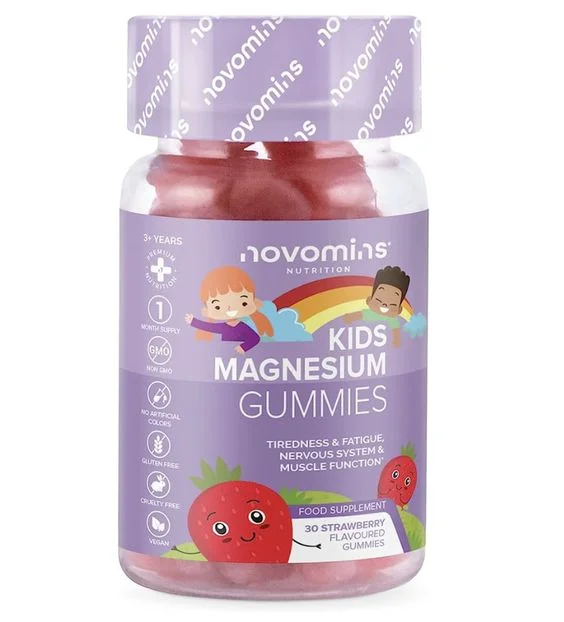
While magnesium citrate can be beneficial in treating constipation in children, it is important to be aware of the side effects and necessary precautions to ensure safe usage.
Common Side Effects
Children taking magnesium citrate may experience several common side effects, which typically are not serious but can be uncomfortable. These include:
- Diarrhea: Loose stools are frequently a direct result of magnesium citrate’s laxative effect.
- Gas: Abdominal bloating and gas can occur.
- Drowsiness: Some children might feel sleepy after consumption.
Interactions and Contraindications
Magnesium citrate should be used cautiously, especially in patients with:
- Kidney Disease: Patients with kidney issues might not clear magnesium adequately, increasing the risk of toxicity.
- Dehydration: As magnesium citrate can increase water loss through stools, dehydration risk should be considered.
Additionally, magnesium citrate may interact with other medications, so it’s crucial to inform the healthcare provider about any current medications the child is taking.
When to Consult a Healthcare Provider
Consultation with a healthcare provider is essential:
- If there’s an onset of severe side effects, such as intense abdominal pain or difficulty breathing.
- Before starting treatment with magnesium citrate, especially if underlying health issues are present.
- If symptoms persist or worsen, indicating that magnesium citrate may not be the appropriate remedy.
Magnesium Citrate for Specific Conditions
Magnesium citrate offers specific health benefits, particularly for children experiencing gastrointestinal conditions, behavioral issues, or those engaged in sports. It promotes regular bowel movements and may influence mood and stress levels.
Constipation Relief
Magnesium citrate is frequently utilized as an osmotic laxative, an effective choice for children suffering from constipation. The substance works by attracting water into the intestines, promoting stool softening and ease of passage, thereby helping to establish regular bowel movements.
Mood and Behavioral Benefits
Research suggests that maintaining adequate magnesium levels may play a role in improving mood and reducing stress. Children, including those with ADHD, could potentially experience an enhancement in overall behavior and a decrease in stress-related symptoms when magnesium citrate is appropriately incorporated into their diet. The calming effects of magnesium on the nervous system may support better cognitive function and behavioral health.
Use in Sports and Physical Activities
For active children, magnesium citrate can be crucial in muscle function and recovery. It aids in energy production and the regulation of neuromuscular signals, which is vital for young athletes during growth spurts or engaging in regular sports and physical activities. Proper magnesium levels help to prevent cramps, fatigue, and assist in overall physical performance.
Dietary Sources of Magnesium
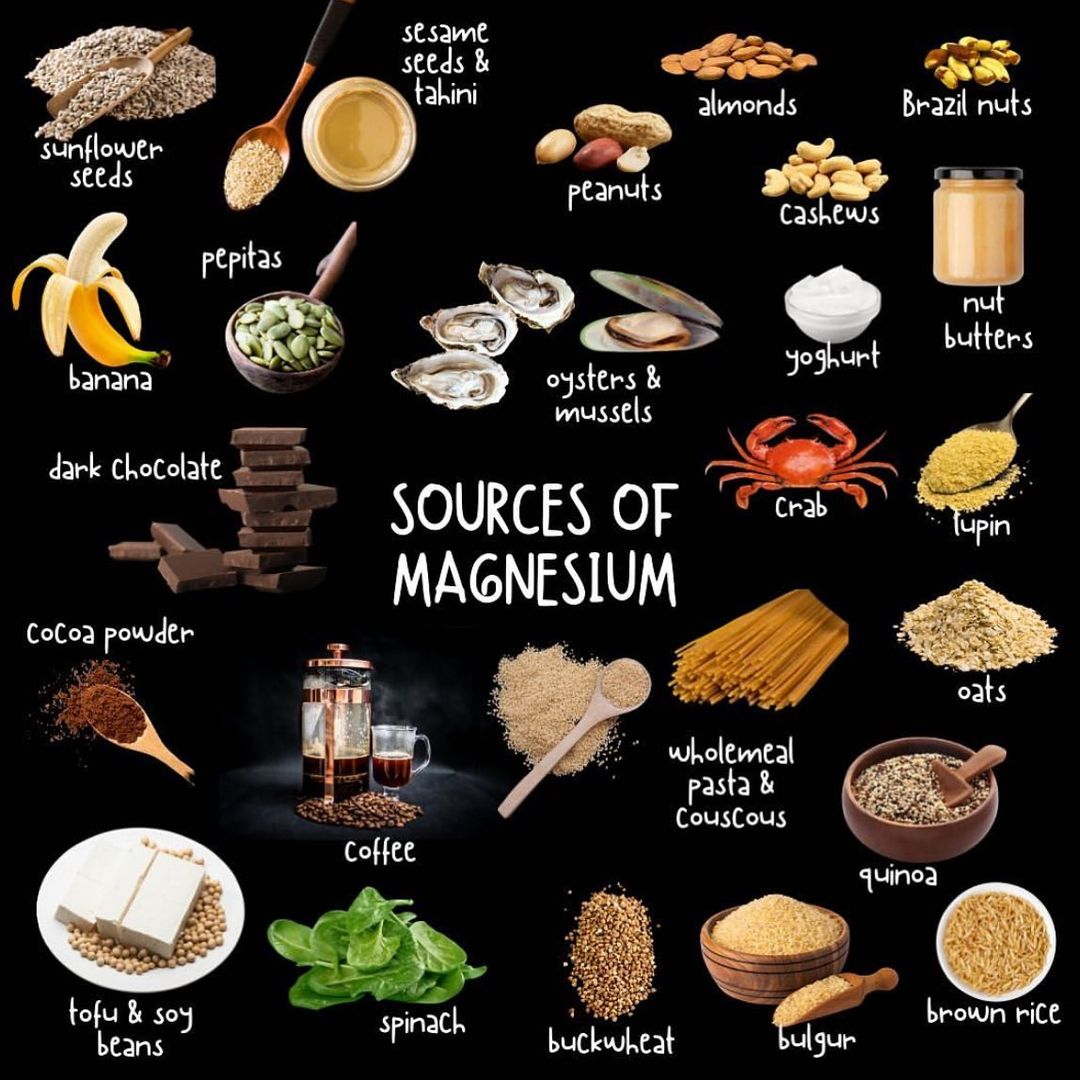
Choosing the right foods can significantly enhance a child’s magnesium intake. Primary sources include legumes, seeds, nuts, and leafy greens which are not only rich in magnesium but also contribute to a healthy diet.
Foods Rich in Magnesium
The variety of foods that contain magnesium is vast, but some have particularly high levels. Here, a focus on these nutrient-dense options can aid in meeting dietary needs:
- Legumes: Kidney beans and other legumes are excellent sources of magnesium. For example, half a cup of cooked black beans contains about 60 mg of magnesium.
- Seeds: Certain seeds, like pumpkin seeds or flax seeds, are not only rich in healthy fats but also magnesium.
- Nuts: Snacking on almonds, cashews, or peanuts can boost a child’s magnesium levels. A one-ounce serving of dry roasted almonds provides roughly 80 mg of magnesium.
- Leafy Greens: Spinach is a potent source, where a cup of cooked spinach delivers about 157 mg of magnesium.
- Whole Grains: Foods such as brown rice offer a considerable amount of magnesium, with one cup of cooked brown rice supplying around 84 mg.
Incorporating Magnesium into a Child’s Diet
When considering the addition of magnesium to a child’s diet, a balanced approach is key:
- Integrating a variety: Include a mix of magnesium-rich foods like seeds in breakfast cereals, nuts as snacks, and legumes in main dishes.
- Magnesium-Rich Snacks: Bananas can be a quick and easy snack, providing more than just potassium; they also offer magnesium.
- Cooking Methods: Steaming or lightly boiling leafy greens retains more magnesium compared to high-heat cooking methods.
It’s important to remember that while supplements are available, a diet that naturally includes magnesium-rich foods is preferable for supporting a child’s overall health and development.
Integrating Magnesium Citrate with Other Supplements
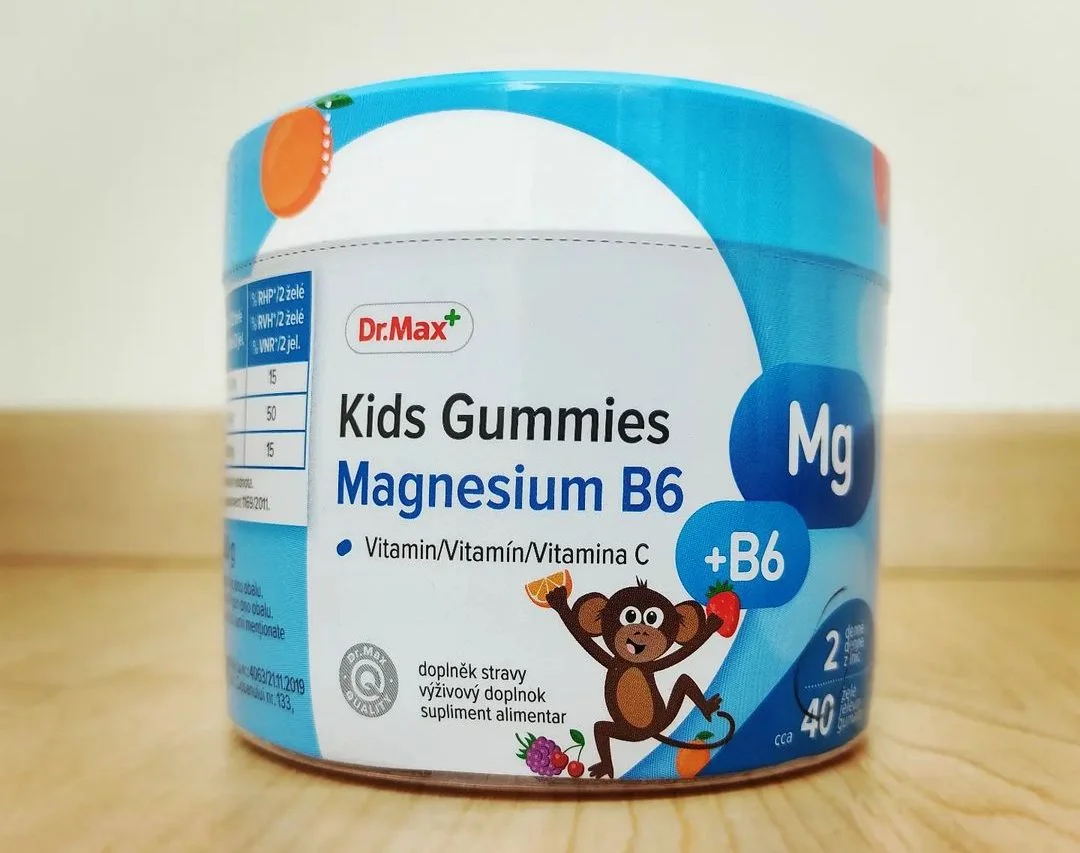
When considering magnesium citrate for children, it’s important to balance its intake with other essential nutrients, particularly calcium and vitamin D, to maximize health benefits. Each nutrient plays a unique role and works closely with others to support a child’s growth and development.
Balancing Magnesium with Calcium and Vitamin D
Calcium is crucial for bone health and muscular function, and it should be taken in conjunction with magnesium to ensure proper absorption and utilization by the body. An imbalance can lead to deficiencies and affect a child’s bone strength. Typically, the ratio of calcium to magnesium should be close to a 2:1 ratio for optimal results. Providing children with sufficient vitamin D is also vital as it assists in the absorption of both calcium and magnesium. Dietary supplements may contain all three nutrients, but it’s important to check labels to ensure that the quantities align with daily recommended values.
- Ratio: Calcium (400-800 mg) : Magnesium (200-400 mg)
- Vitamin D: Ensures proper absorption; recommended dose varies based on age and sun exposure
Synergistic Effects with Other Nutrients
Magnesium supplementation can have synergistic benefits when taken with other nutrients. For example, vitamin B6 works with magnesium to enhance its uptake and help with the synthesis of neurotransmitters in the brain. Furthermore, for proper metabolic function, adequate levels of magnesium are needed, as it activates enzyme systems that are crucial for energy production and nutrient metabolism. It’s critical to consult a healthcare provider for the appropriate combination and dosage of dietary supplements for children to avoid over-supplementation or interference with nutrient absorption.
- Vitamin B6: Enhances magnesium absorption and supports brain health
- Metabolism: Magnesium activates enzymes for nutrient breakdown and energy creation
Understanding Magnesium Deficiency in Kids

Magnesium deficiency in children can affect many aspects of health and development. It is vital to recognize the signs, understand how it’s diagnosed, and explore options for supplementation when necessary.
Signs of Low Magnesium
Children with insufficient magnesium might display symptoms such as irritability, muscle cramps, and fatigue. Frequent instances of these symptoms can suggest a deficiency, especially if they are combined with a diet lacking in magnesium-rich foods. Specific behavioral changes like decreased attention span could also be indicative of low magnesium levels.
Testing and Diagnosis
When a magnesium deficiency is suspected, the pediatrician may order a serum magnesium concentration test. This is the most common and readily available test, though it only provides an estimate of total body magnesium stores. Accurate diagnosis often requires clinical correlation with symptoms since normal blood levels can sometimes mask a deficiency.
Addressing Deficiency Through Supplementation
To combat low magnesium levels, a pediatrician may recommend magnesium supplements. Among these, magnesium citrate is a commonly prescribed form due to its bioavailability. The dosage will be carefully determined based on age and the severity of the deficiency to safely restore magnesium levels in the body.
Safety and Regulatory Concerns
When considering magnesium citrate for pediatric use, it’s essential to be aware of the stringent regulations and the safety tips for administering this supplement to children. Adherence to guidelines and thorough consultation with healthcare providers ensure the well-being of young patients.
Regulations and Quality Assurance
The production and distribution of magnesium citrate, as with all dietary supplements, fall under the jurisdiction of regulatory bodies such as the U.S. Food and Drug Administration (FDA). These entities ensure that supplements meet specific quality standards and are generally recognized as safe for consumption when used according to labeled guidelines. Furthermore, healthcare providers, including pediatricians, should guide parents on the regulated dosage suitable for children’s unique health needs.
Safety Tips for Parents and Caregivers
- Consultation: Before administering magnesium citrate, it is crucial for caregivers to consult with a healthcare provider. The provider can determine the necessity and appropriate dosage for individual pediatric health concerns.
- Adherence to Instructions: Following the dosage instructions provided by the healthcare provider or as per the product label is critical for the child’s safety to avoid potential overuse or misuse.
- Monitoring: Continuous observation for any adverse reactions or side effects in children after consuming magnesium citrate is imperative. Should any concerning symptoms occur, contacting a healthcare provider immediately is vital.
Parents and caregivers must be vigilant in ensuring that they are using magnesium citrate appropriately and safely in the pediatric population.

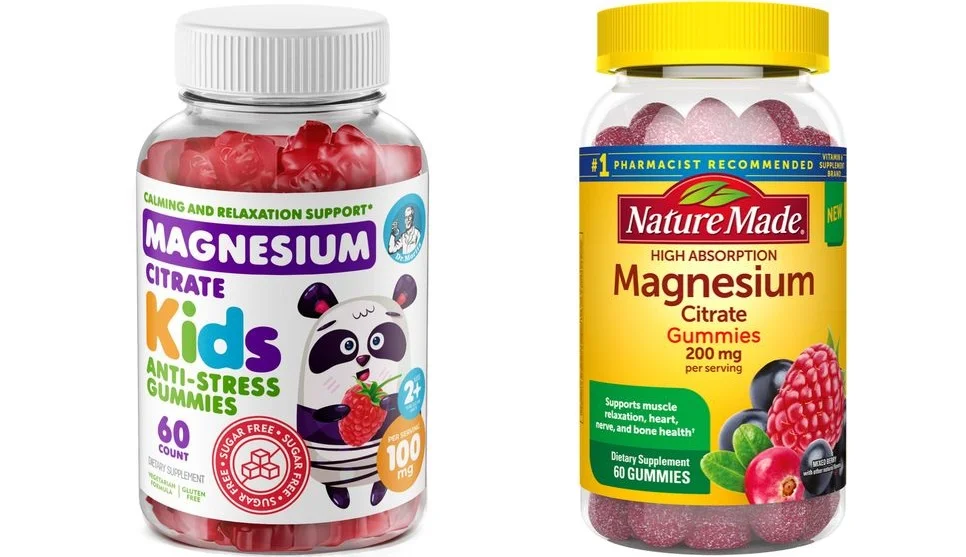





Leave a Reply
View Comments